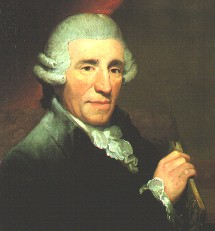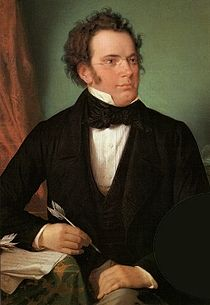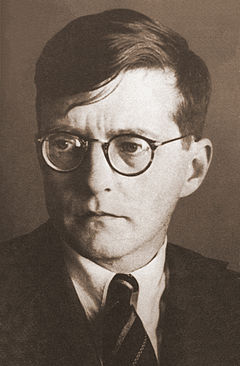- Преподавателю
- Иностранные языки
- Разработка урока на тему Мир музыки
Разработка урока на тему Мир музыки
| Раздел | Иностранные языки |
| Класс | 11 класс |
| Тип | Конспекты |
| Автор | Очирова А.А. |
| Дата | 03.06.2015 |
| Формат | doc |
| Изображения | Есть |
11 класс
The theme of the lesson: «The world of music».
"Music was born of emotions"
(Confucius)
Учебные цели: активизировать монологическую речь учащихся, выработать навыки выполнения заданий в формате ЕГЭ, ознакомить с творчеством известных композиторов.
Развивающие цели: привить устойчивый интерес к классической музыке, развивать восприятие серьезной музыки.
Воспитательные цели: воспитывать чувство прекрасного в детях через знакомство с классической музыкой (на уроке звучат записи классической музыки).
Ход урока.
I Организационный момент. (1 мин)
Warming up.
T: Good morning. How are you?
P: I'm fine because I've listened amusing songs of…
P: I'm fine because I've listened wonderful melodies of… etc.
T: I'm fine because I've listened magnificent music of Glazunov.
How do you think what are we going to speak about?
P: I think we are going to speak about music.
II Основная часть урока
1) The term classical music and its stages.
T: What are two major traditions of music?
P: There are two major traditions of music generally known as classical & popular.
T: By the way, does anybody prefer listening to classical music?
P: I prefer listening to classical music.
P: It is great.
P: Classical music inspires me. etc
T: What is the term classical music used for?
P: It is used to describe the long traditions of serious music from the European Middle Ages to the present.
T: Can you name the main stages of classical music.
P: Early music, baroque music, classical music, romantic music, modern period.
2) The representatives of different stages of classical music.
T: Who is the bright representative of baroque music?
P: I want tell you about Johann Sebastian Bach.
Johann Sebastian Bach was a German composer, organist, violist, and violinist.
Bach's abilities as an organist were highly respected throughout Europe during his lifetime.
Johann Sebastian Bach was born in Eisenach, on the 21st of March in 1685. He was the youngest child of Johann Ambrosius Bach, and Maria Elisabeth Lämmerhirt. His father taught him to play violin. His uncles were all professional musicians. One of his uncles introduced him to the art of organ playing.
Bach wrote music for single instruments, duets and small ensembles. Bach's works for solo instruments-the six sonatas and partitas for violin, the six cello suites.
Bach's best-known orchestral works are the Brandenburg concertos, so named because he submitted them in the hope of gaining employment.
In 1706 Bach was offered a post as organist at St. Blasius's in Mühlhausen After less than a year Bach left Mühlhausen, returning to Weimar this time as organist and concertmaster at the ducal court.
Bach's position in Weimar marked the start of a sustained period of composing keyboard and orchestral works, in which he had attained the technical proficiency and confidence to extend the prevailing large-scale structures and to synthesise influences from abroad.
In Weimar, Bach continued to play and compose for the organ, and to perform a varied repertoire of concert music with the duke's ensemble. He also began to write the preludes and fugues which were later assembled into his monumental work for Clavier.
2a. Учащиеся задают вопросы по прослушанному сообщению.
T: Let's read text about George Frederic Handel. He is also the representative of this period. Your task is to form new words from the words given on the right.

George Frideric Handel was a German-British Baroque 1----,
famous for his operas, oratorios, anthems and organ concertos. Handel was born in 1685, in a family2 ---- to music.
He received critical musical 3 ---- in Halle, Hamburg and Italy before settling in London (1712). By then he was 4 ---- influenced by the great composers of the Italian Baroque and the middle-German polyphonic choral tradition.
Within fifteen years, Handel, a 5 ---- genius, started three commercial opera companies, to supply the English 6 ---- with Italian opera.
In 1737 he changed 7 ----- and addressed middle class. After his success with Messiah (1742) he never performed an 8 --- opera again.
Handel was 9 ----- successful with his performances of English Oratorio on mythical or biblical themes, but when he arranged a 10---- of Messiah to benefit the Foundling Hospital the critique ended. Almost blind, and having lived in England for almost fifty years, he died a respected and rich man.
to compose
different
to train
strong
drama
noble
to direct
Italy
part
to perform
T: Do you know the representatives the next period?
P: I want to tell you about Wolfgang Amadeus Mozart
Wolfgang Amadeus Mozart was born to Leopold and Anna Maria Pertl Mozart in Salzburg, in what is now Austria, on the 27th of January in 1756
Mozart showed prodigious ability from his earliest childhood in Salzburg. He composed from the age of five and performed before European royalty. At 17, he was engaged as a court musician in Salzburg, but grew restless and travelled in search of a better position, always composing.
During Mozart's youth, his family made several European journeys in which he performed as child prodigy.
During this trip, Mozart met a great number of musicians and acquainted himself with the works of other composers. A particularly important influence was Johann Christian Bach, whom Mozart visited in London in 1764 and 1765.
The composer had a great number of friends and admirers in Salzburg and had the opportunity to work in many genres, composing symphonies, sonatas, string quartets, serenades, and a few minor operas. Between April and December 1775, Mozart developed an enthusiasm for violin concertos.
Among the better known works that Mozart wrote on the Paris journey are the A minor piano sonata and the "Paris" Symphony; these were performed in Paris on 12 and 18 June 1778.
Mozart's last year was, until his final illness struck, a time of great productivity-and by some accounts a time of personal recovery. He composed a great deal, including some of his most admired works: the opera The Magic Flute, the final piano concerto, the Clarinet Concerto, the last in his great series of string quintets, the motet Ave verum corpus, and the unfinished Requiem .
2b. Учащиеся задают вопросы по прослушанному тексту.
T: Let's read the text about Franz Joseph Haydn, your task is to put the words into the right form.

Franz Joseph Haydn 1 ---- an Austrian composer, one of the most prolific and prominent composers of the Classical period.
He 2---- often the "Father of the Symphony" and "Father of the String Quartet" because of 3 --- important contributions to these forms. He was also instrumental in the development of the piano trio and in the evolution of sonata form.
A lifelong resident of Austria, Haydn 4 ---- much of his career as a court
musician for the wealthy Esterházy family on their remote estate. 5 ---- from other composers and trends in music until the later part of his long life, he was, as he put it, "forced to become original".
At the time of his death, he was one of the 6 ----- composers in Europe.
Joseph Haydn was the brother of Michael Haydn, 7 ---- a highly regarded composer, and Johann Evangelist Haydn, a tenor. He was also a close friend of Wolfgang Amadeus Mozart and a teacher of Ludwig van Beethoven.
to be
to call
he
to spend
to isolate
celebrated
he
P: I want to tell you about Beethoven.
Beethoven was born of this marriage in Bonn on the 16th of December, in 1770.
Beethoven's first music teacher was his father.
In March 1787 Beethoven traveled to Vienna for the first time, in the hope of studying with Mozart. But his mother died, and Beethoven became responsible for the care of his two younger brothers, and he spent the next five years in Bonn.
For the premiere of his First Symphony, Beethoven hired the Burgtheater on the 2nd of April in 1800, and staged an extensive program of music, including works by Haydn and Mozart, as well as the Septet, the First Symphony, and one of his piano concertos. The concert, was said to be "the most interesting concert in a long time".
By the end of 1800 Beethoven and his music were already much in demand from patrons and publishers.
Beethoven's compositions between 1800 and 1802 were dominated by two works, although he continued to produce smaller works, including the Moonlight Sonata.
In the spring of 1802 he completed the Second Symphony. The symphony received its premiere at a concert in April 1803 at the Theater an der Wien.
Around 1796, Beethoven began to lose his hearing. He suffered from a severe form of a "ringing" in his ears that made it hard for him to hear music.
There is a story that, at the end of the premiere of his Ninth Symphony, he had to be turned around to see the tumultuous applause of the audience; hearing nothing, he wept. Beethoven's hearing loss did not prevent his composing music, but it made playing at concerts increasingly difficult.
A large collection of Beethoven's hearing aids, such as a special ear horn, can be viewed at the Beethoven House Museum in Bonn, Germany.
2c. Учащиеся задают вопросы по прослушанному сообщению.
T: Let's read the text about Franz Peter Schubert, your task is to put the words into the right form.

Franz Peter Schubert was an Austrian composer.
Although he 1 ---- at an early age, Schubert was tremendously prolific.
He 2 --- some 600 Lieder, nine symphonies (including the famous "Unfinished Symphony"), liturgical music, operas, some incidental music, and a large body of chamber and solo piano music.
Appreciation of his music during his lifetime 3 -----, but interest in Schubert's work increased dramatically in the decades 4 ----- his death at the age of 31. Franz Liszt, Robert Schumann, Johannes Brahms and Felix Mendelssohn, among others, discovered and championed his works in the 19th Century. Today, Schubert 5 ----- as one of the leading exponents of the early Romantic era in music and he 6 ---- one of the most frequently 7 ---- composers.
to die
to write
to limit
to follow
to admire
to remain
to perform
P: I want to tell you about Claude Debussy.
Claude Debussy was born in France on the 22nd of August in 1862. He was the eldest of five children. His father owned a shop where he sold china and crockery, and his mother was a seamstress.
In 1870 the family moved in Cannes. Debussy began piano lessons there at the age of seven years with an elderly Italian violinist named Cerutti; his lessons were paid for by his aunt. His talents soon became evident, and in 1872, at age ten, Debussy entered the Paris Conservatoire, where he spent eleven years.
As the winner of the 1884 Prix de Rome with his composition, Debussy received a scholarship to the Académie, to further his studies.
The Academy hoped for something better from the gifted student. Debussy finally composed four pieces that were sent to the Academy: the symphonic ode, based on a text by Heinrich Heine; the orchestral piece; the cantata, which was criticized by the Academy as "bizarre"; Massenet concluded, "He is an enigma."
During his visits to Bayreuth in 1888, Debussy was exposed to Wagnerian opera, which had a lasting impact on his work. The German composer's influence is evident in his works.
Around this time, Debussy met Erik Satie, who proved a kindred spirit in his experimental approach to composition and to naming his pieces. During this period, both musicians were bohemians enjoying the same cafe society and struggling to stay afloat financially.
T: One of the other representatives of Modern period is Dmitri Shostacovich. It is your hometask, fill in the gaps, please.

Dmitri Dmitriyevich Shostakovich was a Soviet Russian composer and one of the most celebrated composers of the 20th century.
Shostakovich achieved 1---- in the Soviet Union under the patronage of Leon Trotsky's chief of staff Mikhail Tukhachevsky, but later had a complex and difficult relationship with the government. Nevertheless, he received state awards.
After a period influenced by Sergei Prokofiev and Igor Stravinsky, Shostakovich developed a hybrid style, including the neo-classical style (showing the influence of Stravinsky) and post-Romanticism (after Gustav Mahler).
Shostakovich's orchestral works include 15 symphonies. His 2 -----
work is 3 ---- complex and requires large scale orchestras.
For the piano he composed two solo sonatas, an early set of preludes, and a later set of 24 preludes and fugues. Other works include three operas, and a substantial quantity of film music.
famous
symphony
typical
3) Sharing impressions about music the pupils have heard.
P: I like classical music because…
P: It'samazing.
P: It's fascinatihg.
P: It's unforgettable.etc
4) My favourite style of music.
5) Pupils tell about their favourite styles and sing a song "Girl" (The "Beatles").
The Beatles - Girl
Is there anybody going to listen to my story
All about the girl who came to stay?
She's the kind of girl you want so much, it makes you sorry,
Still you don't regret a single day.
Ah, girl, girl, girl.
When I think of all the times I've tried so hard to leave her,
She will turn to me and start to cry.
And she promises the earth to me and I believe her
After all this time I don't know why.
Ah, girl, girl, girl.
She's the kind of girl who puts you down
When friends are there, you feel a fool.
When you say she's looking good
She acts as if it's understood, she's cool, ooh, ooh, ooh.
Ah, girl, girl, girl.
Was she told when she was young that pain would lead to pleasure?
Did she understand it when they said
That a man must break his back to earn his day of leisure?
Will she still believe it when he's dead?
Ah, girl, girl, girl.
Ah, girl, girl, girl.
III. Подведение итогов.
-
Summing up.
-
Hometask.
-
Marks.


